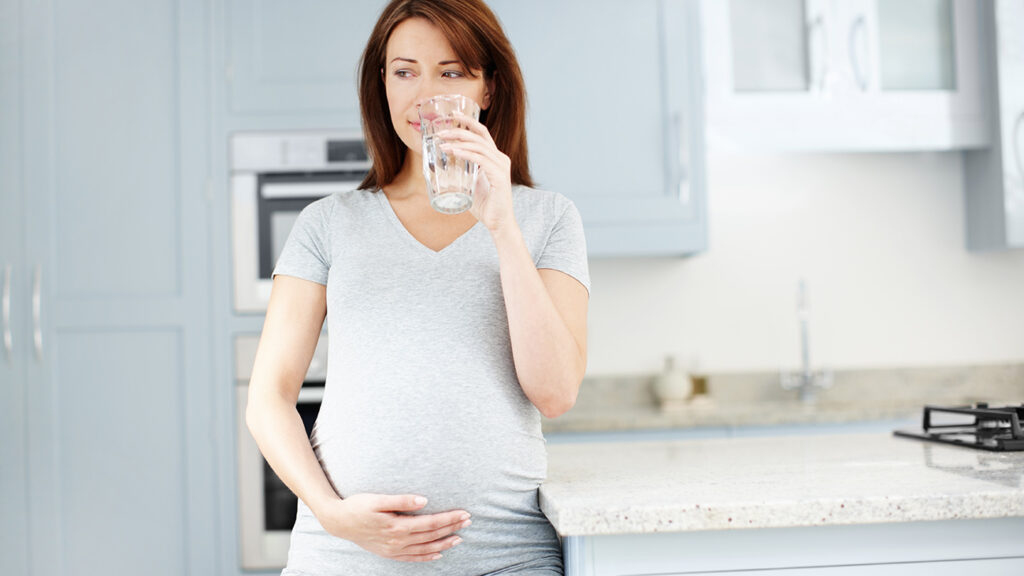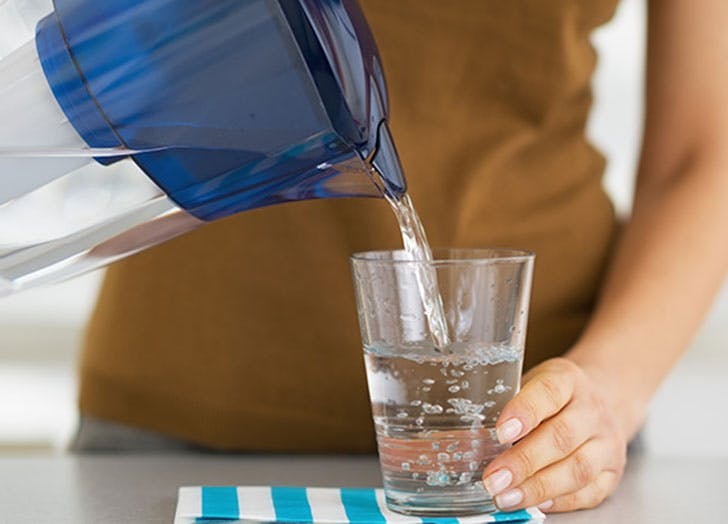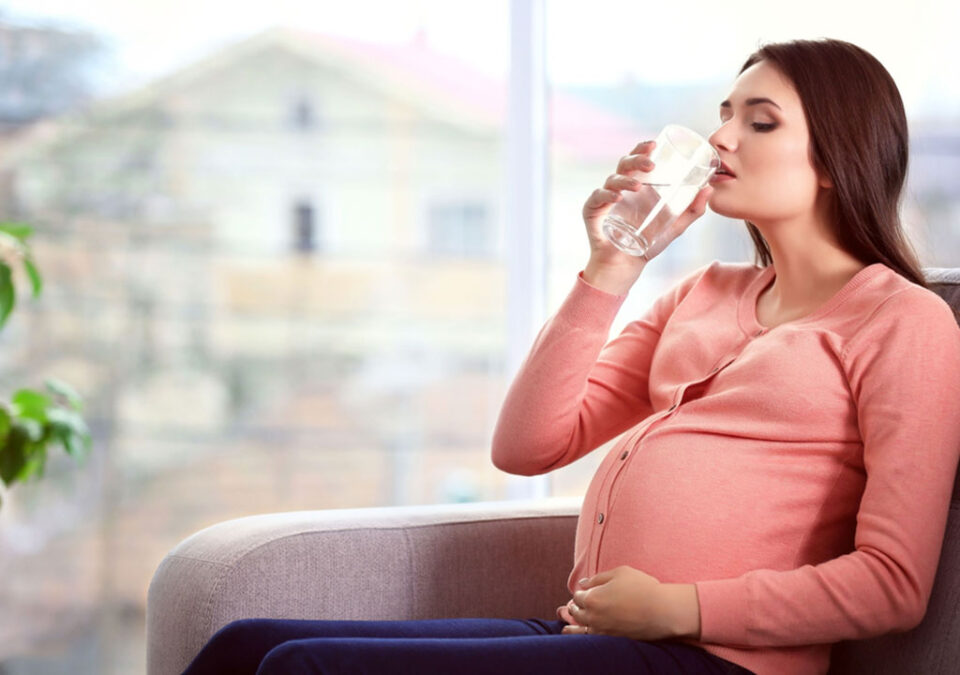Over the past several years, an alkaline water craze has erupted in the US with a host of information on both sides of the fence. On one side lies the naysayers, while on the other side lies the advocates. If one thing is true, pregnant women should be especially careful with their dietary decisions, so the question “Is Alkaline Water Safe for Pregnant Women?” has been debated in recent months.
Unfortunately, a lot of sales pitches pop up when exploring this topic, which can make it difficult to find an honest unbiased answer. Additionally, alkaline water is relatively new in the US, especially when compared to Asia, where it’s commonly been consumed for decades.
In this article, you’ll learn exactly what you need to know in as little time as possible. In short, the answer to this question is both yes and no. Once you have the chance to understand alkaline water a bit better, you’ll understand that there are different types of alkaline water.
Natural Alkaline Water vs. Ionized Water

First, it’s important for pregnant women to know the difference between naturally alkaline water and alkaline ionized water. Most people who claim that alkaline water benefits health are actually talking about ionized water.
So what’s the difference? In simple terms, alkaline water is nothing new. It’s simply water with a pH above neutral which is 7. Now, on the other hand, ionized water undergoes a process called electrodialysis in a water ionizer or alkaline water machine.
The alkaline ionized water produced by these machines is not the same as naturally alkaline water. For example, popular bottled water brands including Fiji and Icelandic Glacial are both naturally alkaline. In other words, the naturally occurring minerals in the water raise the pH above 7 to make the water slightly alkaline.
Comparatively, water ionizers can boost water pH above 9, which is not common in nature. Unlike natural alkaline water, ionized water is artificially created with an ionizer. Clearly, there’s a difference between what Mother Nature produces and what you make in your kitchen with the help of an ionizer.
The bottom line is that ionized water is artificially created while naturally alkaline water typically comes from spring sources. One bottled brand of water you might have seen recently is Essentia. The difference between Essentia and alkaline spring water brands is that Essentia is alkaline ionized water. Rather than bottling water at the source, Essentia makes ionized water on a larger scale than you’d make with a water ionizer made for home use.
Use Caution When Drinking Ionized Water

According to the EPA’s National Secondary Drinking Water Regulations (NSDWRs), the safe pH range for drinking water is 6.5 to 8.5. However, it’s important to note that these are “Secondary” regulations that are “non-enforceable.” In other words, the pH of your drinking water is not as important as the levels of heavy metals and other common water contaminants.
Consequently, it’s important to know that drinking naturally alkaline water with a pH between 7 and 8.5 is safe for everyone including pregnant women according to EPA standards. This means, popular bottled water brands like Fiji or alkaline water from your tap are both safe to drink.
Now, as for ionized water, pregnant women should take more caution. There’s no concrete research or evidence proving alkaline ionized water is beneficial to health, nor is there any definite reason for pregnant women to consume alkaline ionized water.
The key takeaway here is that starting with natural alkaline water is the better choice if you really want to try alkaline water.
How to Get Alkaline Drinking Water at Home

A good way to save on bottled water is to make alkaline water right in the comfort of your own home. The most efficient way to do it is to invest in a good water filter with remineralization. There are several options ranging from water filter pitchers to under-sink water filters.
Your best option is a reverse osmosis system with a remineralization filter, click here to view your options. The reason this type of system is great is that it first removes all contaminants and minerals from your drinking water before adding minerals back to boost the water pH to a slightly alkaline level.
You’ll find that your water pH falls safely between 7 and 8.5. Plus, you’ll avoid drinking over-mineralized water. Over-mineralization can occur when you add more minerals to your tap water using an alkaline water filter pitcher or other similar types of filters. This problem is especially important to consider if your tap water is hard because hard water already contains high levels of calcium and other minerals.
Finally, it’s important not to rely on lemons or baking soda to make your own alkaline water. Instead, consider a reverse osmosis water purifier with remineralization that installs below your sink because it’s the most effective way to make purified alkaline drinking water at home.
Final Thoughts
Is alkaline water safe for pregnant women? Overall, the answer is yes. However, it’s very important for you to know the difference between ionized water and naturally alkaline water first. Once you know the difference, then, it’s up to you to use your best judgement for you and your baby’s health.
While naturally alkaline water is fine for all people to drink, pregnant women need to carefully consider the reasons why they would want to drink ionized water. Considering research is mixed on the topic, and there aren’t enough definitive answers, it’s hard to say that anyone will benefit from drinking alkaline ionized water, particularly pregnant women.
One reason people drink ionized water is the sweeter taste of alkaline water compared to acidic water. Additionally, there’s a lot of anecdotal evidence showing that people do benefit from drinking it. Yet, it’s important to know that this is anecdotal evidence, and not something you’ll find published or readily endorsed by most healthcare professionals.
As with all major dietary decisions during pregnancy, it’s best to consult your doctor or another healthcare professional instead of following the opinions of others.
Disclaimer: This is an opinion article and not meant to replace the advice of a healthcare professional or provide medical advice.



